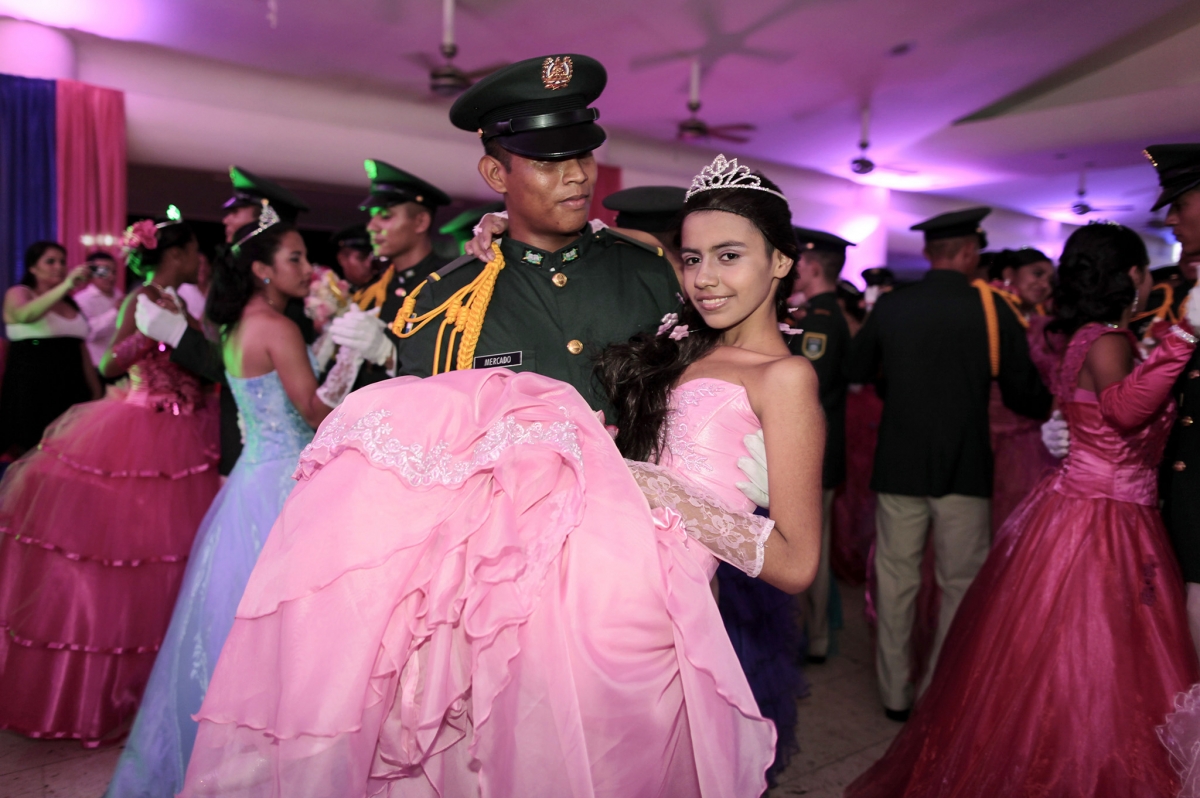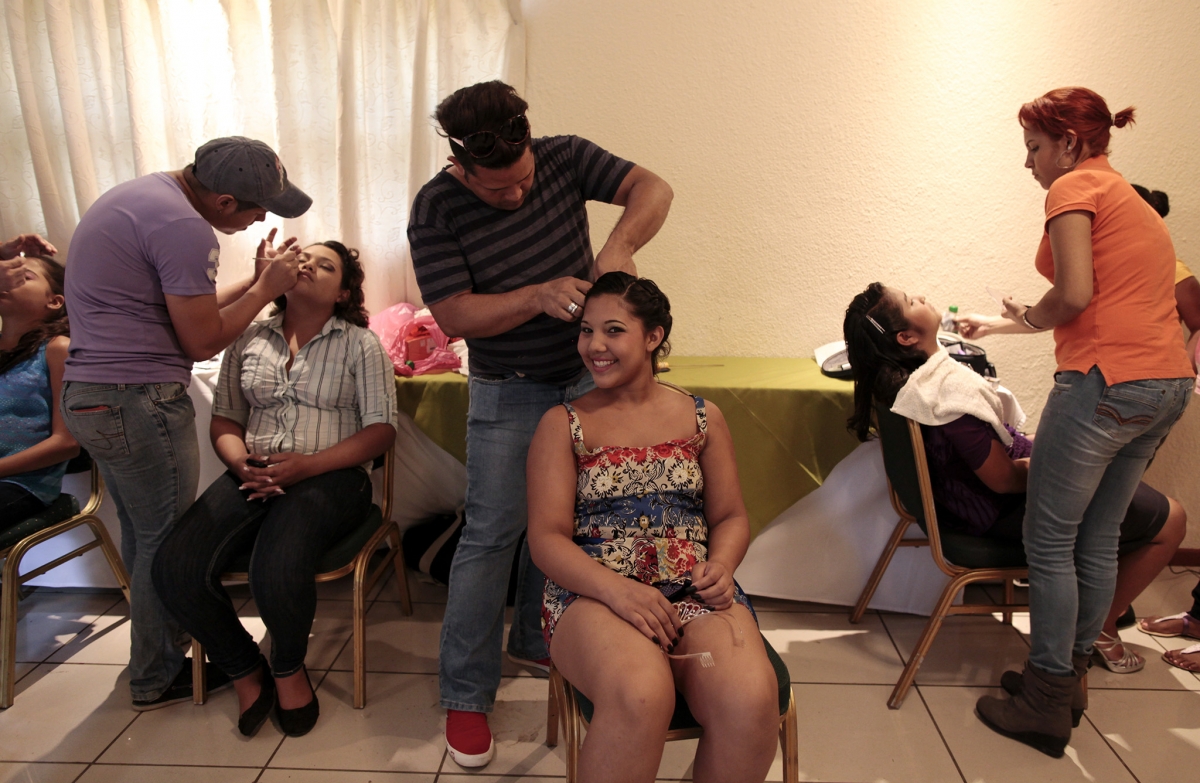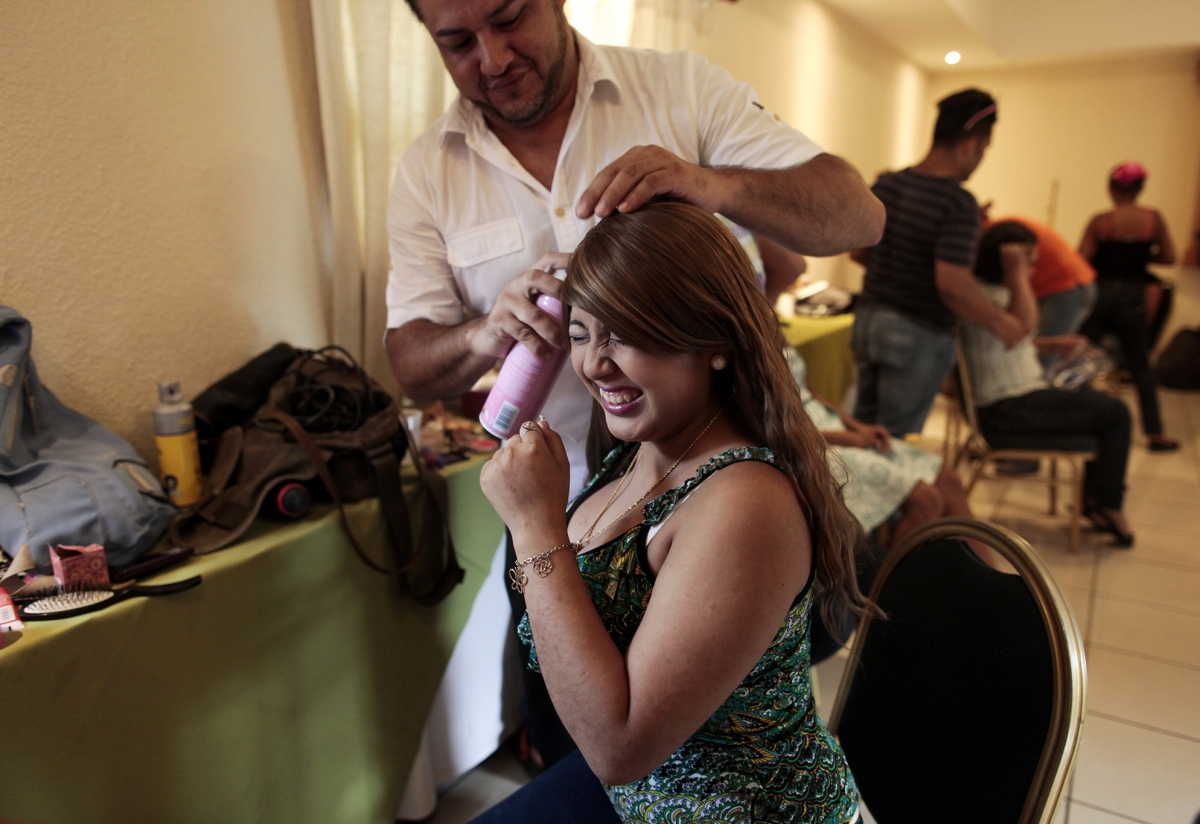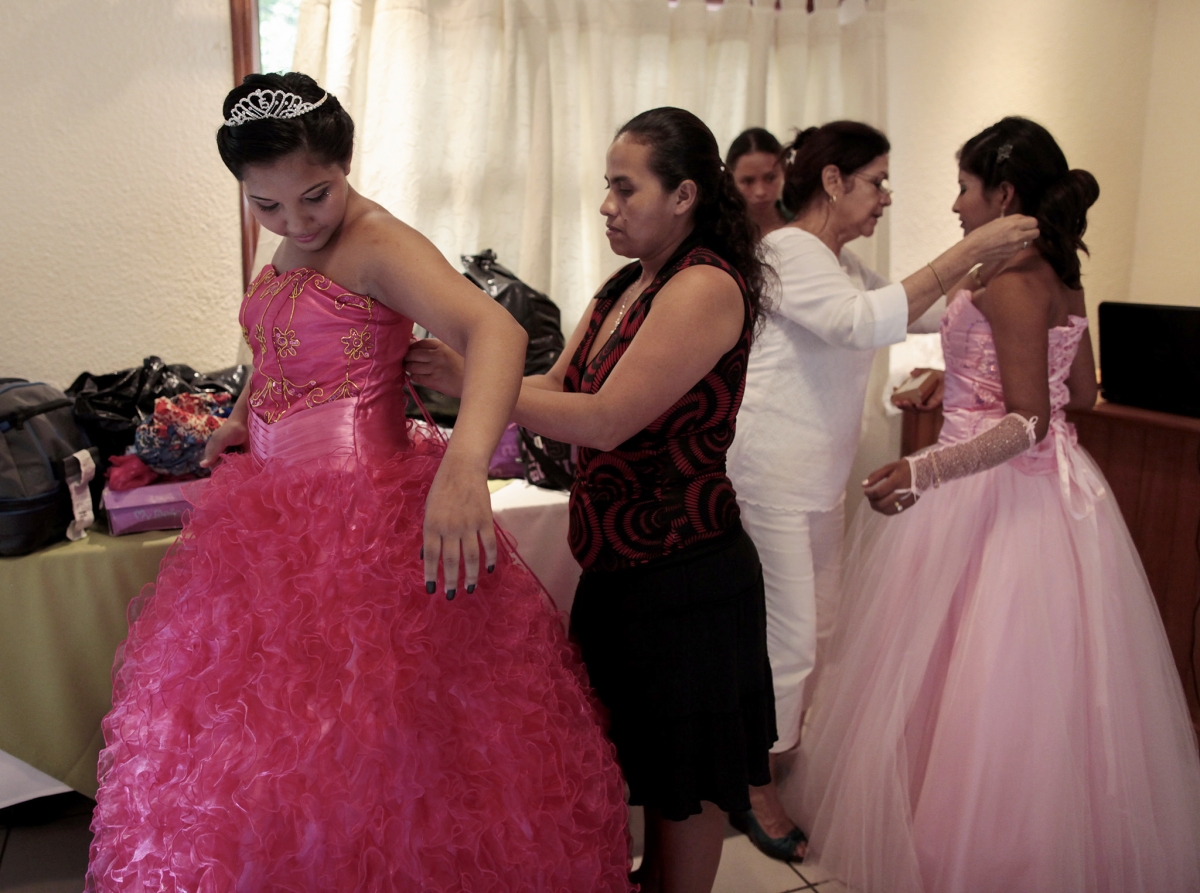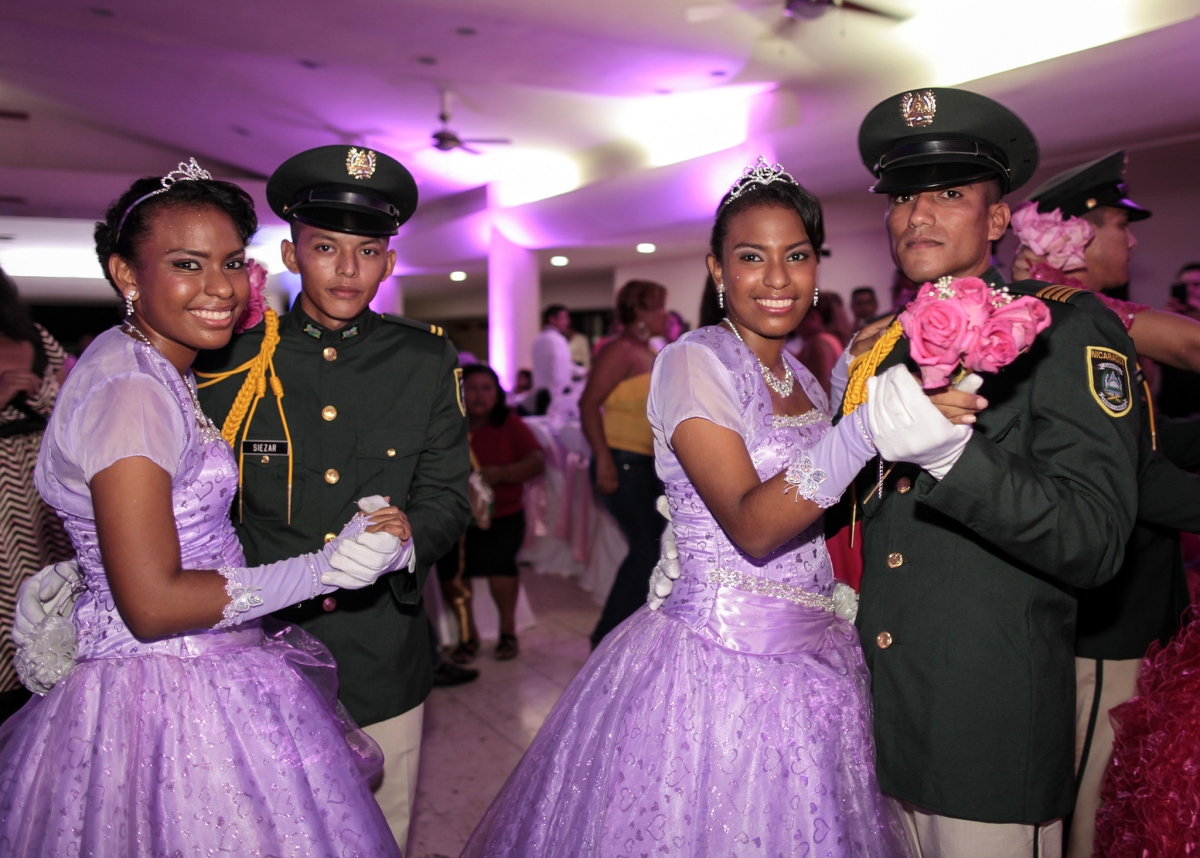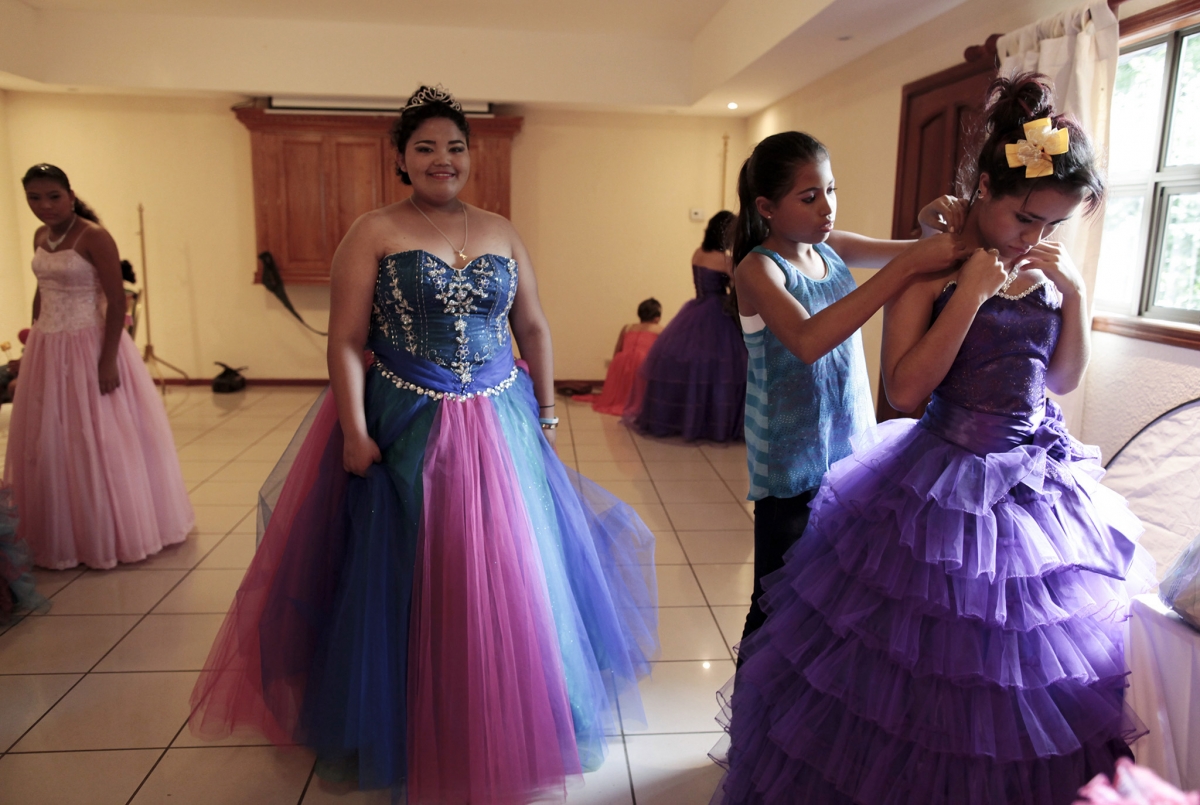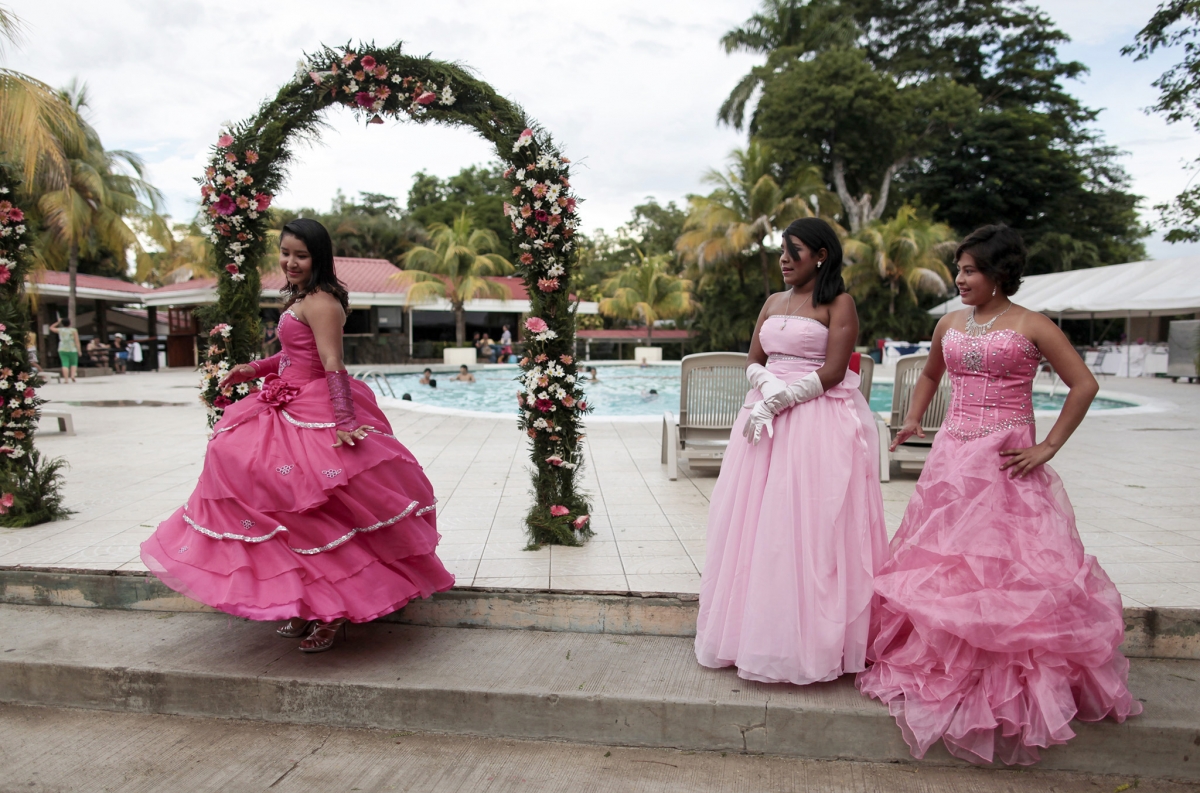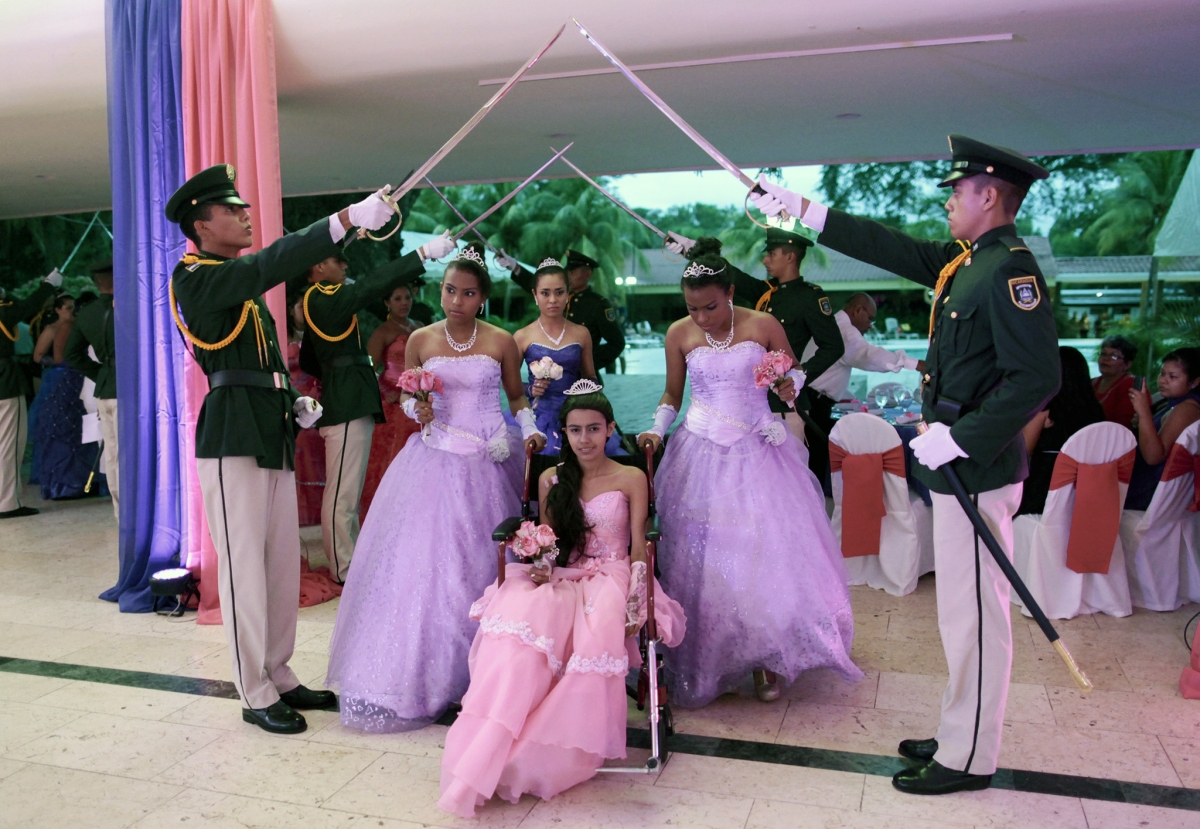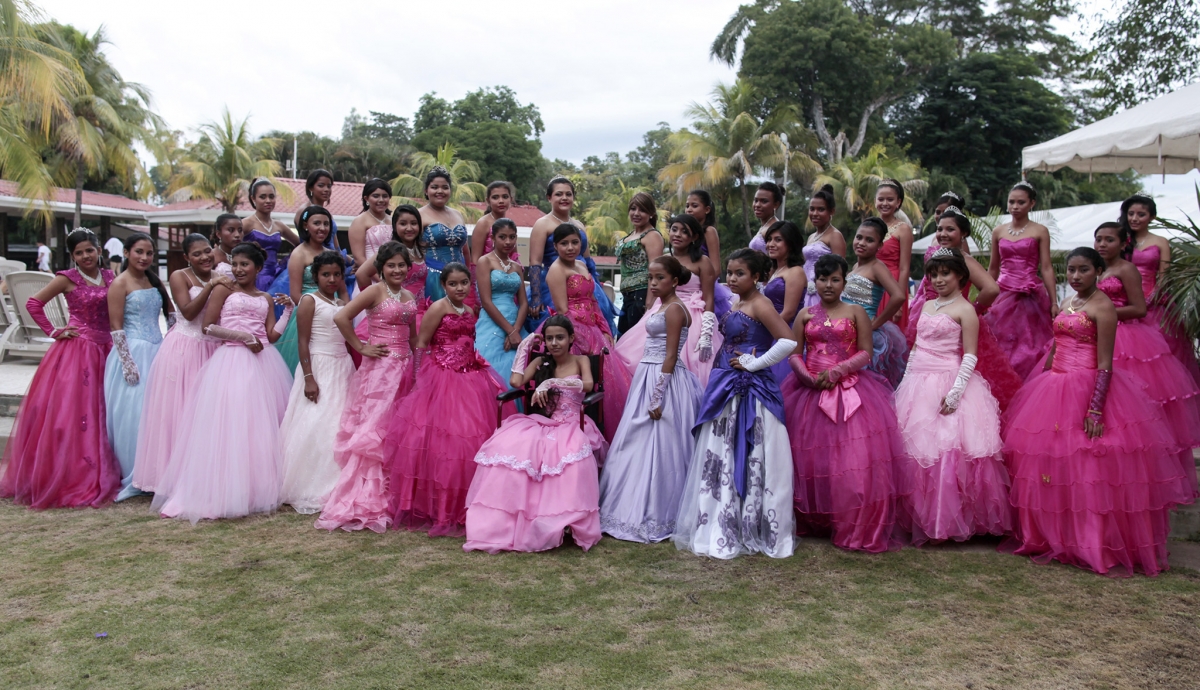Every 15-year-old Latin American girl dreams of her "Quinceañera" or "fiesta de quince" from a very young age, it is after all a celebration of a girl's transformation into a woman.
However, for many families in Nicaragua, who could not afford the special day, this 'coming of age' ceremony was not a realistic possibility, especially since their young daughters were suffering from cancer.
Thankfully, for the last six years, the Nicaragua's Association of Mother and Father of Children with Leukaemia and Cancer (MAPANICA) has been able to put on a Quinceañera, complete with elegant gowns and elaborate feasts, for girls from poor, rural families who are battling with the illness.
This year, the Quinceañera held at a hotel in Managua, was attended by 44 celebrants, aged between 14 and 16, who were escorted by cadets from Nicaragua's Military Academy.
Yamileth Barrera, a 16-year-old from San Jose de Bocay, said she really enjoyed being with the other girls and wasn't kept from dancing by the wheelchair that she uses because of bone cancer.
"I am happy because only once in a life do you celebrate your 15th year," Barrera told Mindfood.
Local donors, who took on the traditional role of "padrinos," or godfathers, made donations for the magical night, including paying for the girls' outfits including dresses and shoes.
Each padrino even paid for the medicine of three or four of the girls who attended the party, while other contributors arranged for the floral arrangements, cakes and other refreshments for the Quinceañera.


